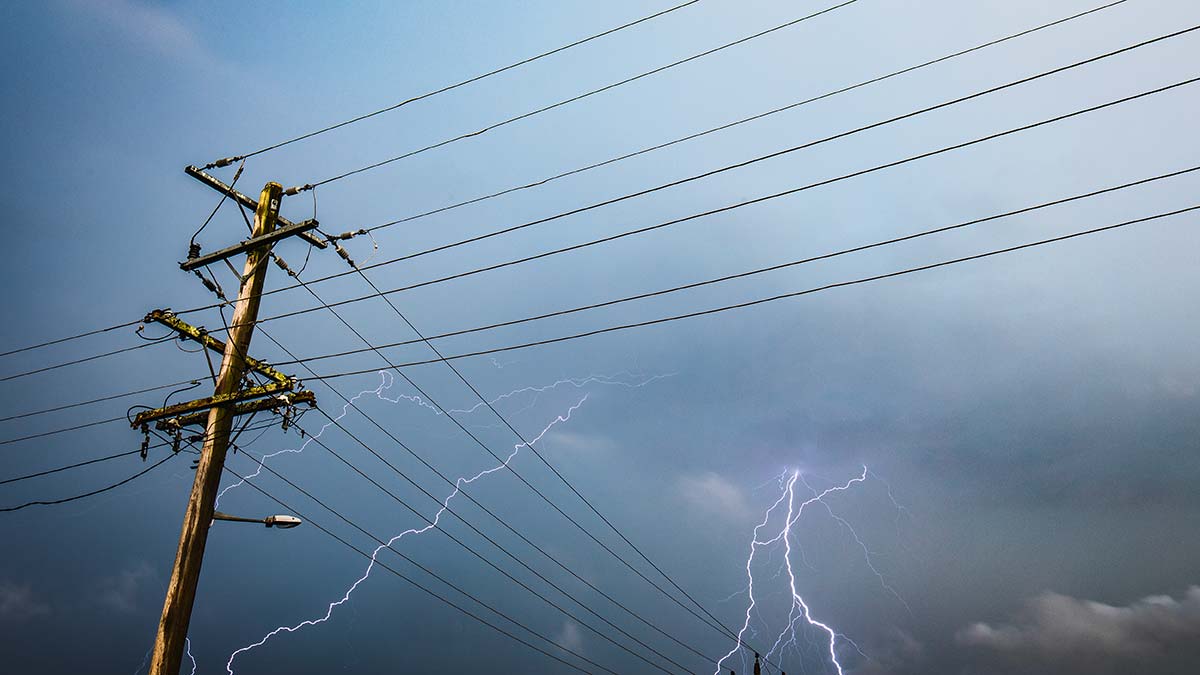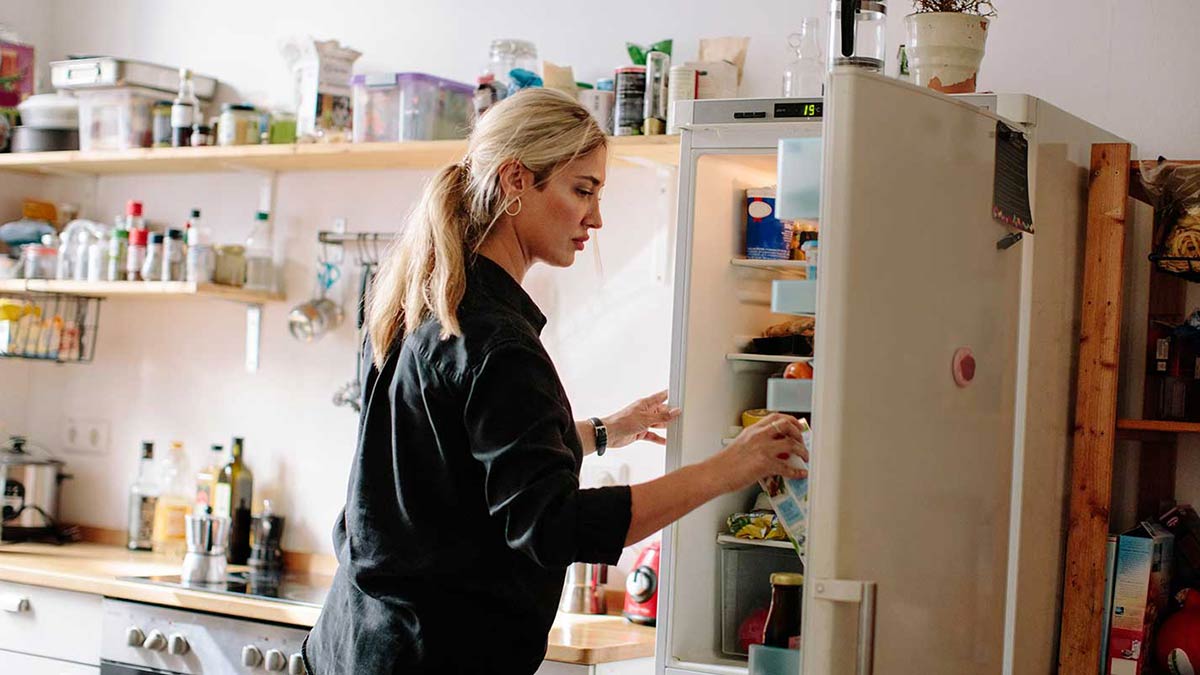Your home is a top target for burglars when you go on holidays. Here’s what burglars are looking for when they break and enter your home, plus how to safeguard your house.
What to do in a power outage or blackout

Sometimes scheduled, sometimes sudden and dangerous, and always inconvenient - here’s what to do when the power goes out.
Power outages and blackouts always seem to happen at the most inopportune times. Whether you’re in the middle of your favourite movie, cooking dinner, or working from home, a power outage or blackout can range from a minor inconvenience to something more dangerous and prolonged.
Occasionally, your energy provider may give you advance warning of a scheduled power outage to undertake essential maintenance work – enabling you to get organised for an outage that typically lasts just a few hours.
Sudden and severe weather such as storms, floods, strong winds, bushfires, heatwaves and other events however are all major contributors to power outages and blackouts in Victoria, with the potential to disrupt power to affected properties for days or even weeks in their aftermath.
Here's how to best deal with a blackout or power outage.

Storms and other severe weather events have the potential to disrupt power supplies. Image: Getty
What to do in a blackout
Depending on the nature of the power outage or blackout, planning and preparedness can reduce the impact on your household. Home Insurance may cover you for damage caused to your property or contents during events that cause you to lose power, such as fires, floods or storms.
Before a power outage
If you have warning of a scheduled power outage, or if you know that a blackout may occur due to storms and other events, it pays to be prepared.
If you or someone in your household relies on life support equipment, you may be eligible for protection under the life support energy regulations. This means that your local distributor should advise you in advance of any electricity outages, and that in the event of a power outage your property will be on the priority list for re-connection.
Charge all communication devices
Key communication devices such as mobile phones, tablets and laptops, spare batteries and power banks should be fully charged prior to a scheduled or predicted power outage. Consider purchasing a solar power bank to help keep your devices on during a prolonged power outage.
Put together an emergency kit
Put together a home emergency kit that includes first aid supplies, medicines, toiletries, torches and portable power banks. Also ensure you have a battery-powered radio on hand to listen in for updates from emergency services.
If the power outage is due to a severe weather event, organise key documents, medical information, home insurance and pet plans, and gather any small personal items that are sentimental to you in case you need to quickly leave your home.
Purchase non-perishable food and drink
A prolonged power outage may render the contents of your fridge or freezer unsafe to eat. Ensure you have enough supply of non-perishable food and drink on hand, including bottled water.
Get your home and vehicles prepared
Minimise damage to your home and key contents by preparing in advance of a severe weather event that may cause a power outage. Secure loose items in the backyard, including outdoor furniture, bikes, trampolines, sporting equipment and tools, to help prevent them causing damage during high winds.
Park your vehicles undercover in a garage or carport if possible. When preparing for a scheduled maintenance outage, think about whether you will be able to easily access your car without power - your electric garage doors or electric gates may not be operational. You should also ensure that your fuel is topped up, whether you own a diesel, petrol or electric vehicle.
Most doghouses and birdcages are not sturdy enough to protect your pets from something like a storm – so bring your pets inside.
Before a known power outage, charge all mobile phones, laptops and tablets. Image: Getty
During a power outage
Check the source and nature of the outage
It’s important to understand whether the power outage is localised to your home, street, suburb or state. Note down the time as soon as you notice a power outage, check your home’s safety switch, and get in touch with your neighbours.
If the outage is localised to just your home, or part of it, you should contact a licensed electrician to determine the cause of the fault.
Listen to a battery operated radio for updates from emergency services. In the case of a severe weather event, check the Bureau of Meteorology Victorian Warnings Summary on your mobile phone. The VicEmergency website and mobile app also provide emergency warnings and information for Victorians.
Turn off and unplug electronic devices
Turn off all electrical appliances and unplug them at the switch to safeguard your home and contents against a power surge, particularly if the power outage is caused by a storm.
You may wish to keep a light or alarm clock switched on or stay close to a fixture in your home like an oven clock, so that you’re aware of when power returns to your property.
Avoid opening your fridge and freezer
It’s important to keep the doors of your fridge and freezer closed during a power outage or blackout, so that food and drink remains cold for as long as possible. The contents of your fridge can spoil quickly during a power outage and become unsafe to consume.
Instead, eat foods that don't require cooling or cooking, such as breakfast cereals, canned fruits and vegetables, or jerky.
Use alternative heating, cooling, light and hygiene sources
Closing your curtains or blinds can help retain a normal temperature inside the house, as they keep out hot sun in summer and cold air in winter.
In summer, keep cool by drinking plenty of water, avoiding strenuous activities, and hang wet towels in a room to help cool down the air.
In winter, wearing multiple layers of clothing and a hat can help to keep you warm without turning on the heater.
Use torches rather than candles as light sources to avoid a fire risk. Invest in a good stock of back-up batteries.
If your hot water is unavailable, you can use disposable baby wipes for personal hygiene.

During a power outage or blackout, avoid opening the fridge and freezer. Image: Getty
After a power outage
Check your fridge and freezer contents
Once power comes back to your home, take careful stock of your fridge and freezer contents and note how long the power was out to avoid food poisoning. Be wary of consuming poultry, meat or dairy products that have been kept in a fridge or freezer without power.
Better Health Victoria reports that cold or frozen food must generally be less than 5°C in order to be safe to use. If your freezer food is still cold to touch and less than 5°C when the power comes back on, you can refreeze those foods. If cold or frozen food is no longer cold to touch and 5°C or above, then it must be eaten within a maximum of four hours. Past this time, it is no longer safe to consume.
If you’re in any doubt about the safety of your fridge or freezer contents, dispose of them immediately.
RACV Contents Insurance provides up to $500 to replace spoiled food or prescription medication if an insured event interrupts the electricity supply to your fridge or freezer. When you claim only for food spoilage, you won’t need to pay an excess, however, your No Claim Bonus may be affected when you renew your policy.
Will my gas appliances work during a blackout?
It's a common misconception that gas appliances work during a power outage or blackout. Connections to the gas mains will not work, so don't attempt to operate your gas appliances during a blackout.
Can a solar battery power my home during a blackout?
Solar power systems automatically stop working when there’s a power blackout on the grid, to stop power flowing back into the grid. However, many new solar battery storage systems come equipped with a backup option, which can provide backup power during a blackout. Before you invest in solar power in your home, check whether the battery has a backup option.
Advanced solar batteries can even be set to provide storm alerts, and automatically charge from the grid if necessary to make sure you have a full battery if the power does go out.
If your home has solar and battery backup that can provide power during a blackout, only run your essential appliances such as your refrigerator, freezer, and lights. This means the battery won't drain as fast, which is useful if the outage goes on for an extended time.
The information provided is general advice only. Before making any decisions please consider your own circumstances and the Product Disclosure Statement and Target Market Determinations. For copies, visit racv.com.au. As distributor, RACV Insurance Services Pty Ltd AFS Licence No. 230039 receives commission for each policy sold or renewed. Product(s) issued by Insurance Manufacturers of Australia Pty Ltd ABN 93 004 208 084 AFS Licence No. 227678.


